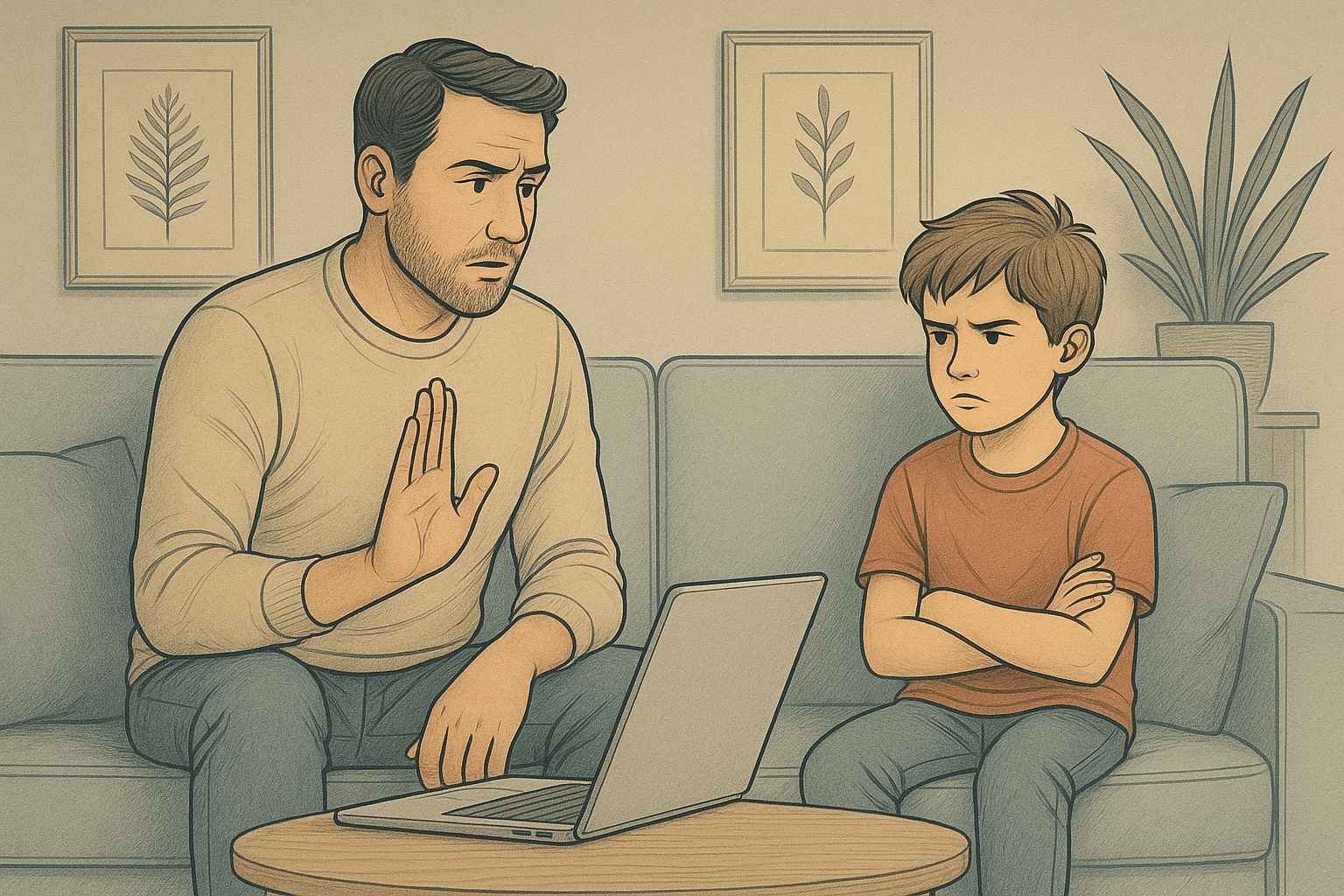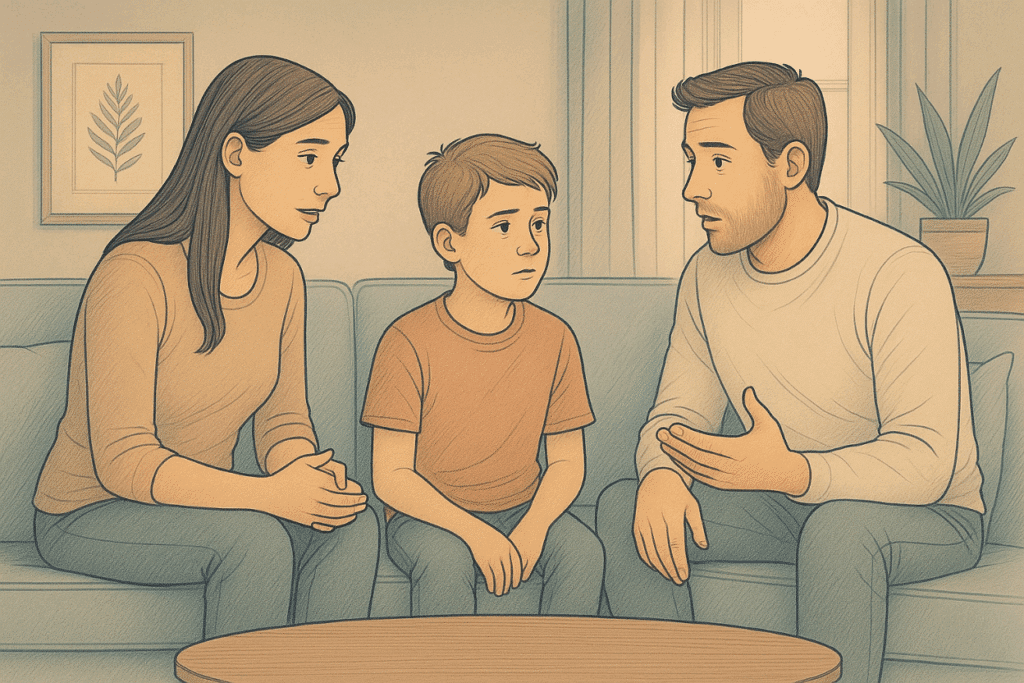Key Takeaways
- Open communication and emotional validation create the foundation for emotional security, helping children develop healthy coping mechanisms and self-awareness.
- Healthy digital boundaries and consistent sleep routines are essential, as excessive screen time reduces active engagement time while quality sleep directly impacts mood, concentration, and behavior.
- Strong relationships and social connections with family, peers, and community provide emotional support systems that protect against mental health challenges and teach vital interpersonal skills throughout life.
- Mission Prep offers premier mental health support that addresses the entire family system through innovative therapeutic approaches, board-certified psychiatrists, and customized programs in home-like environments that prepare teens for life’s challenges.
Understanding the Modern Child Mental Health Crisis
In today’s world, where success is often measured by productivity and achievement, protecting our children’s mental health has become more critical than ever.
The pressures of modern society, from over-scheduled lives to excessive screen time can significantly impact a child’s emotional well-being and development.
However, by implementing thoughtful strategies and creating nurturing environments, parents can foster resilience, emotional intelligence, and lasting mental wellness in their children.
Mission Prep Healthcare specializes in mental health treatment for teens aged 12-17, offering residential and outpatient programs for anxiety, depression, trauma, and mood disorders. Our therapies include CBT, DBT, EMDR, and TMS, tailored to each adolescent’s needs.
With a structured, supportive environment, we integrate academic support and family involvement to promote lasting recovery. Our goal is to help teens build resilience and regain confidence in their future.
5 Strategies to Protect Your Child’s Mental Health
Strategy 1: Foster Open Communication and Emotional Validation
Building the Foundation of Emotional Security
Creating an environment where children feel safe to express their thoughts and emotions is fundamental to their mental health.

Open communication serves as the bedrock for this.
Allow your children to easily come to you with their problems or when they’re feeling overwhelmed, this helps them develop healthy coping mechanisms and trust from an early age.
The Art of Active Listening
Active listening goes beyond simply hearing words; it involves engaging with your child’s emotional world with genuine interest and empathy.
This means putting away devices and giving your full attention during conversations, asking open-ended questions that encourage deeper sharing, and reflecting back what you hear to show understanding.
When a child feels truly heard, they develop trust in their ability to communicate and in their parent’s willingness to support them through difficult times.
Emotional Validation as a Healing Tool
Parents play a crucial role in helping children manage their emotions by validating their experiences.
This involves acknowledging feelings without immediately trying to fix or dismiss them. Simple phrases like “You’re feeling frustrated, and that’s okay” or “It’s normal to be angry when things don’t go as planned” can provide immense comfort to a struggling child.
Strategy 2: Create Structure While Allowing Unstructured Play
Embracing the Gift of Boredom
Contrary to popular belief, boredom is not something to be immediately remedied. Boredom invites creativity, critical thinking and problem-solving.
When left to their own devices, kids find creative ways to entertain themselves. The more they do this, the better they get at it.
Finding the Right Balance
Creating a balanced schedule requires prioritizing quality over quantity in activities and leaving significant gaps in the weekly schedule for free play.
Resist the urge to fill every quiet moment with organized activities and instead allow your children to choose how to spend some of their unstructured time. This approach helps children develop autonomy, decision-making skills, and self-direction.
The Magic of Unstructured Play
Unstructured play allows children to explore their interests organically, develop problem-solving skills independently, and build creativity and imagination without adult intervention.
Through free play, children learn to self-regulate, manage their own time, and process emotions and experiences naturally. Creating play-rich environments with simple, open-ended materials like blocks, art supplies, and dress-up clothes encourages this type of beneficial play.
Strategy 3: Establish Healthy Digital Boundaries and Sleep Routines
Understanding the Digital Dilemma
Technology offers many benefits for children’s learning and development, but excessive or inappropriate use can significantly impact their mental health and sleep patterns. The key is helping children develop a balanced relationship with digital devices rather than viewing technology as entirely good or bad.
Teaching kids about healthy device usage, monitoring their access to age-appropriate content, and actively engaging with them about their online experiences creates a foundation for lifelong digital wellness.
The Power of Predictable Screen Time

The key to successful screen time management is predictability rather than complete removal.
Establishing specific times when screens are allowed, such as thirty minutes after homework or Saturday mornings, helps children understand expectations and reduces constant negotiating.
Creating clear start and end times for screen use, implementing screen-free zones like bedrooms and dining areas, and using visual timers helps children understand time limits and transition more easily.
Creating Sleep-Supportive Environments
Developing calming bedtime routines that signal it’s time to wind down helps children transition from the activity of the day to peaceful rest.
This involves ensuring the bedroom environment is conducive to sleep by keeping it cool, dark, and quiet, while limiting screen time for at least one hour before bedtime.
Encouraging daytime physical activity and outdoor exposure to natural light also supports healthy sleep patterns, as does avoiding caffeine and large meals close to bedtime.
Strategy 4: Build Strong Relationships and Social Connections
The Social Foundation of Emotional Health
Strong, supportive relationships are crucial for children’s emotional well-being and resilience. The quality of connections that children develop with family members, peers, and community members significantly influences their mental health outcomes throughout life.
These relationships provide emotional support, teach important social skills, and create a sense of belonging that protects against mental health challenges.
Strengthening the Family Unit
Family relationships provide children with their first sense of security and belonging. Scheduling regular family activities like shared meals, game nights, or outdoor adventures creates opportunities for connection and communication.
Creating family traditions that foster belonging and practicing active listening during family conversations helps children feel valued and heard. Showing physical affection appropriate to your child’s comfort level and resolving conflicts constructively models healthy relationship skills.
Nurturing Peer Connections
Social relationships outside the family help children develop vital interpersonal skills and provide additional emotional support systems. Encouraging participation in age-appropriate group activities and supporting your child in developing and maintaining friendships builds social confidence.
Teaching conflict resolution and empathy skills helps children manage social challenges, while helping shy children find comfortable social settings ensures all personality types can form meaningful connections.
Strategy 5: Maintain Physical Health and Recognize Warning Signs
Nutrition as Mental Health Medicine

Proper nutrition supports brain development and cognitive function while stabilizing mood and energy levels.
Providing balanced meals with a variety of fruits, vegetables, whole grains, and lean proteins gives children the nutrients their developing brains need to function optimally.
Limiting processed foods, excessive sugar, and artificial additives helps prevent mood swings and energy crashes that can impact emotional regulation.
Physical Activity for Emotional Regulation
Regular physical activity stimulates the release of endorphins, promoting positive mood and reducing anxiety. The benefits extend far beyond physical fitness to include improved self-esteem, better sleep, and enhanced ability to manage stress.
Supporting participation in sports or physical activities your child enjoys ensures they develop a positive relationship with movement. Making family physical activity a priority through hiking, biking, or swimming creates shared experiences while modeling healthy habits.
Recognizing the Early Warning Signs
Despite our best preventive efforts, children may still experience mental health challenges. Early recognition and intervention are crucial for positive outcomes.
Parents should watch for persistent sadness, irritability, or dramatic mood swings that last longer than typical childhood ups and downs. Social withdrawal or avoiding previously enjoyed activities often signals underlying emotional distress, as does significant changes in academic performance or increased aggression and defiant behavior.
Seeking Professional Support
If you observe persistent warning signs or have concerns about your child’s mental health, seeking support from your child’s pediatrician, school counselors or psychologists, or licensed mental health professionals specializing in children can provide valuable guidance.
Community mental health resources may also offer support and services. Seeking help is a sign of strength and care, not weakness or failure as a parent.
Strengthening Your Family’s Mental Wellness Journey with Mission Prep
Protecting your child’s mental health requires intentional strategies that foster emotional resilience, healthy boundaries, and meaningful connections. But there are times when preventive measures aren’t enough and professional support becomes necessary.
At Mission Prep, our premier mental health treatment programs go beyond addressing symptoms to create sustainable change through innovative therapeutic approaches combined with time-tested methods. Our board-certified psychiatrists and clinical team provide personalized care for your adolescent.

Mission Prep offers comprehensive care for your teen in warm, home-like environments designed to foster healing and growth.
We believe in treating not just the teen, but the entire family, recognizing that sustainable recovery requires comprehensive support systems. Our customized programs prepare adolescents for life’s challenges while giving families the tools and fresh start they need.
With our commitment to clinical excellence, accredited facilities, and family-centered approach, Mission Prep transforms the treatment experience into a foundation for lasting wellness and family connection.
Frequently Asked Questions
How can I tell if my child is experiencing mental health challenges?
Warning signs include persistent sadness or irritability lasting longer than typical childhood mood fluctuations, social withdrawal from previously enjoyed activities, significant changes in academic performance, and physical symptoms without medical cause like headaches or stomachaches. Changes in appetite, sleep disturbances, difficulty concentrating, and expressions of hopelessness should always be taken seriously and addressed promptly.
What’s the right balance between structure and free play for my child?
The key is prioritizing quality over quantity in scheduled activities while leaving significant gaps for unstructured play. Resist filling every quiet moment with organized activities and instead allow children to choose how to spend free time. This helps develop autonomy, decision-making skills, creativity, and self-direction while preventing chronic overstimulation.
How much screen time is appropriate for children?
Rather than complete elimination, focus on predictability and boundaries. Establish specific times for screen use, create screen-free zones like bedrooms and dining areas, and limit screen time at least one hour before bedtime to protect sleep quality. The goal is ensuring screens don’t replace active, engaged time that positively impacts developmental growth.
When should I seek professional help for my child’s mental health?
Seek professional support when warning signs persist beyond typical developmental phases, when symptoms interfere with daily functioning, or when you have ongoing concerns about your child’s emotional well-being. Contact pediatricians, school counselors, or licensed mental health professionals. Looking for help demonstrates strength and care, not parental failure.
What makes Mission Prep different for teen mental health treatment?
Mission Prep specializes in premier teen mental health treatment that addresses the entire family system, not just the adolescent. We combine time-tested therapeutic approaches with innovative interventions, featuring board-certified psychiatrists and tailored programs in warm, home-like environments. Our approach focuses on sustainable change and preparing teens for life’s challenges while giving families the fresh start they need through comprehensive, family-centered care.















